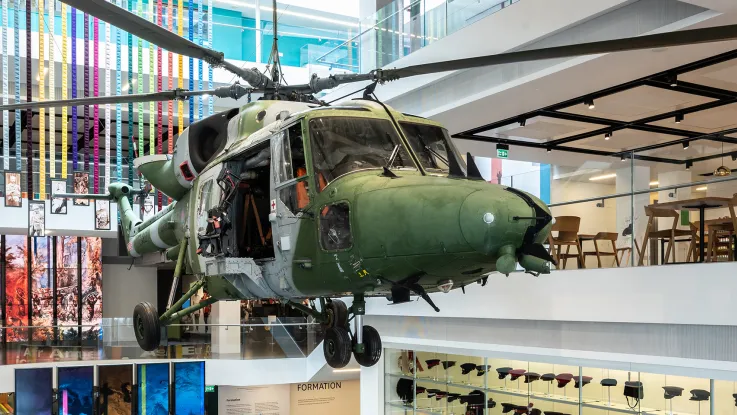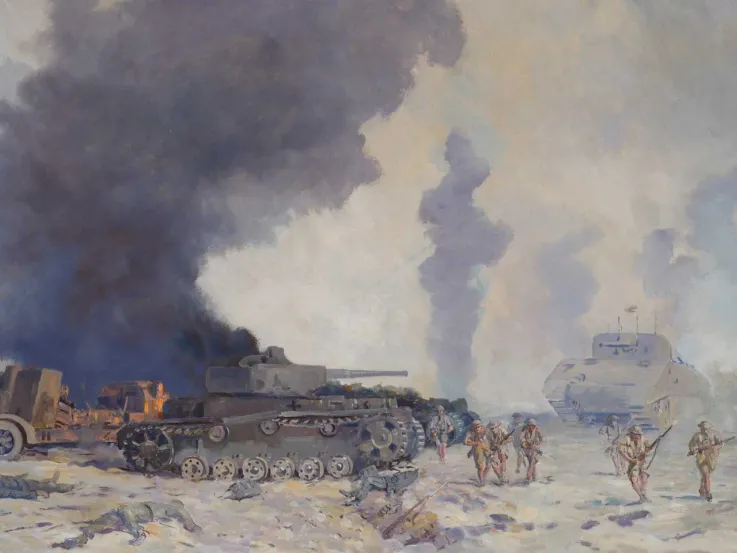The End of the Beginning: The Second Battle of El Alamein

Capturing a German tank crewman at El Alamein, 1942
Join Rupert Wieloch as he marks the 80th anniversary of the Second Battle of El Alamein with a discussion of its key events and its importance in the context of the Second World War.
Attend in person:
- To attend this event in person, book your ticket here
Watch online:
- To watch this event online, register on Crowdcast
- Get help accessing events on Crowdcast
In November 1942, Prime Minister Winston Churchill marked a major turning point in the Second World War by authorising the mass ringing of church bells (not heard for over two years) and declaring: ‘Now this is not the end. It is not even the beginning of the end. But it is perhaps, the end of the beginning.’
The reason for his profound relief and utter delight was the Eighth Army’s victory at El Alamein, which coincided with the American landings at the western end of North Africa.
For more than a week, the Battle of El Alamein had been in the balance. And the Axis defeat was achieved only through the heavy sacrifice of thousands of Allied soldiers, as well as the vital support of the Desert Air Force, the Royal Navy and Special Forces operating behind enemy lines.
In his talk to commemorate the battle's 80th anniversary, Rupert Wieloch will explain the political context and strategic consequences in North Africa, as well as highlighting the role of Churchill and the main participants. He will pay tribute to the fallen and the Victoria Cross recipients, and discuss the hand of fate in the key moments of the battle.
About Rupert Wieloch
Rupert Wieloch is a historian who spent 35 years in the British Army, including ten years as a junior commander in an armoured regiment facing the threat of the Soviet 3rd Shock Army.
In 2011, while serving as a member of the Middle East peace process working group on arms control, he became involved in the UN-authorised operation to protect civilians in Libya and was appointed as the Senior British Military Commander in Tripoli.
His latest book, 'Liberating Libya: British Diplomacy and War in the Desert', includes fresh insights about the Western Desert campaigns and the enduring Anglo-Libyan relationship.
Explore further


